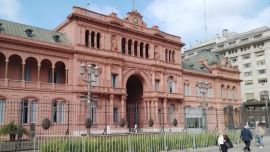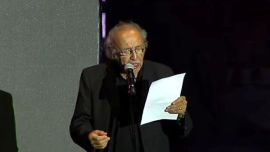Argentine biotechnology firm Bioceres Crop Solutions Corp scored a big win Friday after China approved imports of the company’s drought-resistant soybean strain. The stock had its biggest jump in more than a year.
China’s Agriculture Ministry approved the HB4 strain of soy developed by Bioceres, according to a document posted on its website. HB4 is the first drought-resistant soy available to farmers and the endorsement from China – the world’s largest consumer of soybeans – could bring broader acceptance for the genetically modified seeds around the world.
“As drought becomes an ever-increasing threat, we believe broad farmer adoption across all major soy producing regions will occur,” Ben Klieve, an analyst at Lake Street Capital Markets Inc, said by email. “This is definitely a big deal for Bioceres.”
Bioceres’s US shares jumped 18 percent to US$14.10 at 11.56am in New York, its biggest intraday increase since April 2021.
Bioceres is pushing the technology for farmers who have been suffering harsher weather, and China’s decision paves the way for its entry into a key market. The technology has already been approved in the United States, Brazil, Paraguay and Canada – nations responsible for more than 85 percent of the global production and export of soybeans. Argentina authorised the HB4 strain in 2015, pending import approval from China.
Bioceres sees a total potential market for HB4 of 20 million to 25 million hectares in the United States, Brazil and Argentina, mostly in areas more affected by weather extremes, such as La Niña in Argentina and Brazil’s south. The technology promises higher yields for farmers, with gains of more than 13 percent compared to standard technology, according to a company presentation earlier this month.
by Carolina Millan, Tatiana Freitas & Tarso Veloso, Bloomberg


















Comments